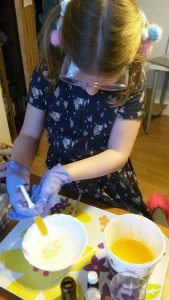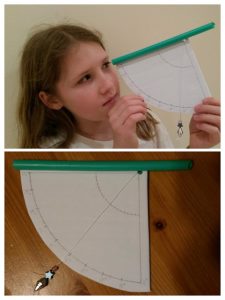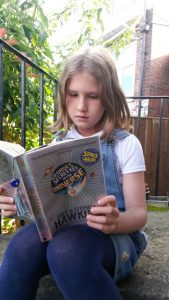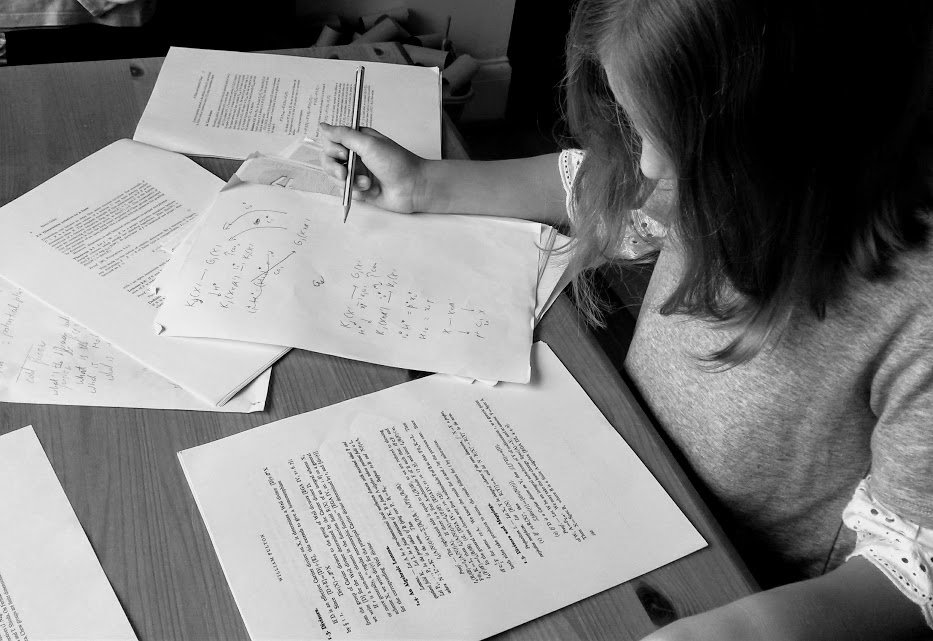With schools closed because of the coronavirus pandemic, most parents across the UK now have to work, look after their families and teach their kids at the same time- all from the comfort of their homes. Already skilled workers and experienced caregivers, we, the parents, entered the ultimate uncharted territory, homeschooling. To say we were unprepared would be a gross understatement.
How do I plan/ supervise/ evaluate my child’s learning? How do I make sure my child doesn’t fall behind? What if I don’t know/ cannot explain something my child does not understand?
Hands in the air if you DID NOT have those questions when you started off. Thought so!
In the first #StayHome week we had quite a bit of teaching practice, some victories and, undoubtedly, some failures. Anyway, it’s now the two week Easter holiday break, time to relax, regroup, rethink our strategies and expectations.
May the force be with you, parents and carers!
First of all, let’s point out that what we are doing now is not “homeschooling”, in a sense that you didn’t choose to educate your child at home and be in charge of their learning journey. There is no need to recreate school at home and turn your living room into a classroom. So give yourself a break, a pat on the back, pour a cup of tea. You are doing great!
Next, let’s remind ourselves of some obvious benefits, for the kids and yourself, of learning from home. When things are busy, putting things into perspective helps keep one’s head above the water!
Learning environment that meets the needs of YOUR CHILD. Not the other way around!
In school where one instructor is supposed to educate 30 individuals, the approach to teaching is “one size fits all”. Well, it does NOT. So this temporary homeschooling a chance for you to organize your child’s learning around their personal strengths and preferences. Or, rather, let them learn uninterrupted.
What topics does your child enjoy the most? When is her/his most productive time? How long can your child focus on one activity? What kind of learner are they?
Don’t forget that individual learning is more intensive, so the children can spend less time engaged in formal learning activities. Forget the 9 AM to 3 PM school day! An hour or two before lunch and an hour or two after for an upper KS2 child (less for younger kids) should be more than enough. That leaves lots of time for playing, crafting, reading and exploring! That’s learning too! So leave out some musical instruments, good books, puzzles, gardening equipment and let the magic happen!
You get to choose HOW
“Any child who can spend an hour or two a day, or more if he wants, with adults that he likes, who are interested in the world and like to talk about it, will on most days learn far more from their talk than he would learn in a week of school.” (John Holt, an American educator and the founder of the “unschooling” movement)
There is nothing wrong with educational websites and tests and questionnaires your child’s teacher sent them to complete. Except, way too many children simply do not get excited about them. Luckily, many things can be learned about and practiced while doing day-to-day tasks.
Maths? Forget the boring tests. Let’s get…cooking! Only we need to adjust that recipe for 3 people to feed 4. Can your little mathematician run the numbers? Next…measuring the ingredients. You can always try an American recipe. Converting Fahrenheits/ butter sticks/ gallons etc into familiar units will take some time! You see where I’m heading with it, right? Everyday Maths is fun-fun-fun! And (sometimes) delicious too!
What’s next, biology? Well…garden it is!



Image: Being bored is good for kids.Some of the best projects we’ve seen we born in an attempt to find
something to do.
Finally, let’s not ignore general advice from the educational specialists.To make sure the temporary homestaying/ homeschooling goes well, do not forget to
-
Stick to the routine
No need to plan a day by minute, but make sure there is a day-to-day structure the children follow. Set time slots for various activities, such as bedtime, lunch, “quiet hour”, computer time, learning time etc. Older children will be happy to take part in the planning (and sure will contribute some great ideas too!).
-
Get lots of fresh air
Did you know that our brain consumes 20% of the body’s oxygen supply? Without fresh air we get tired faster, find it difficult to concentrate and, generally, don’t feel our best.
Combine indoor and outdoor learning, organize mini-breaks, regularly send your learner outside for a two minute breathing-stretching exercise. And don’t forget to air out the rooms while they are out! -
Exercise
Studies show that short exercise breaks increase the students ability to concentrate and retain information. One PE lesson (be it a yoga with you or hopping along with the “body coach”) is great, but not enough. How about some star jumps after guided reading? Maybe a bit of trampolining after a science session? A quick game of hopscotch before the spelling test? Keep them moving!
Just to sum it up, physical and emotional wellbeing of our homeschoolers (as well as ourselves and our partners), and not their academic performance, should be our top priority in these difficult times. Hopefully, by the end of it, we will get closer as families, stronger as parents and more confident as our children’s educators. Happy homeschooling, unschooling and homestaying!
Resources for children and parents who love Space
Check out our mobile space dome Astronomy blog for interesting information about Space, craft ideas, reading recommendations and more. We will be regularly posting astro-updates, stargazing news, challenges and Space craft ideas on our Facebook page too. Don’t miss!


